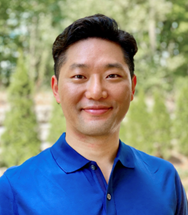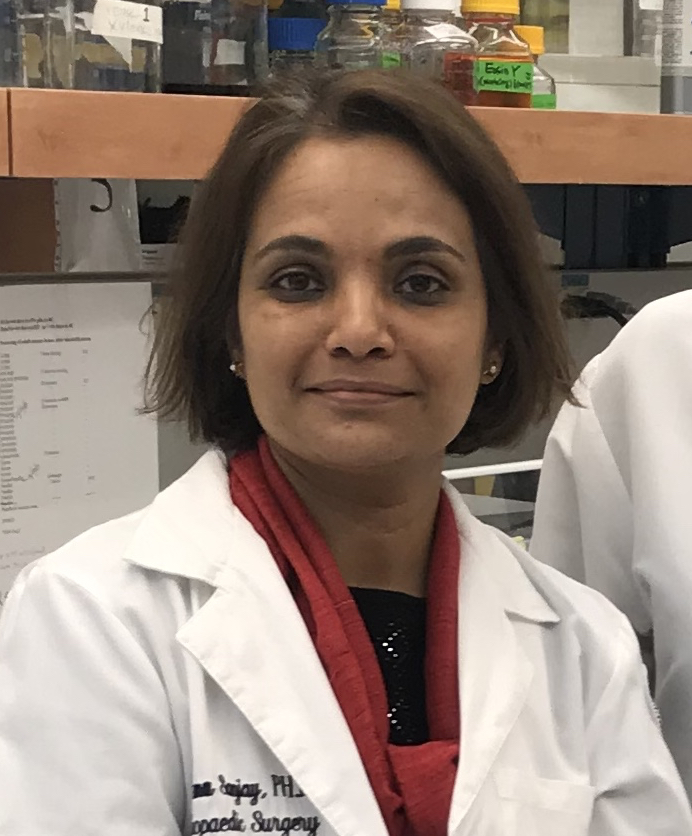What is the UConn Pepper Center Pilot and Exploratory Studies Core?
The UConn Pepper Center Pilot and Exploratory Studies Core (PESC) works to develop and support innovative pilot and exploratory studies that will enhance function and independence in older adults while also advancing knowledge in the field of precision gerontology. The PESC provides funding and access to the each of the UConn Pepper Center research cores resources including research plan implementation, biostatical and biomarker analysis guidance. In addition, the PESC provides mentorship and oversight to the investigators to ensure each project is developed, conducted and to be impactful to the world of aging research.
The goals of the Pilot and Exploratory Studies Core are to:
- To promote high-quality pilot and exploratory research that contributes to the understanding of precision gerontology.
- To foster the careers of earl stage faculty members dedicated to aging-related research and/or more established shifting their research focus towards aging and precision gerontology.
- To collaborate with and contribute to the reach of the UConn OAIC Resource Cores.
Faculty Contacts
Faculty Advisors

Core Co-Leader
Lisa C. Barry, Ph.D., M.P.H.
Associate Professor
Email: libarry@uchc.edu
Dr. Barry is a chronic disease epidemiologist and Associate Professor of Psychiatry at the UConn School of Medicine and the UConn Center on Aging. Her research interests include the interface between mental health and functional disability in older persons, and the relationship among mental health, physical function, and cognition in older incarcerated individuals or those transitioning from incarceration to the community in later life. Dr. Barry has received research funding from NIA, NIMH, and foundations including the Donaghue Foundation and the American Foundation for Suicide Prevention. Dr. Barry received a M.P.H. (1998) and Ph.D. (2004) in Epidemiology and Public Health from Yale University where she also completed a postdoctoral fellowship in Geriatric Clinical Epidemiology and Aging-related Research. Prior to joining the UConn School of Medicine faculty in 2011, Dr. Barry was an Assistant Professor in the Yale Department of Internal Medicine, Section of Geriatrics.

Core Co-Leader
Blanka Rogina, Ph.D., M.S.
Professor
Email: rogina@uchc.edu
Blanka Rogina, Ph.D., is a Professor at the University of Connecticut (UConn) School of Medicine, Department of Genetics and Genome Sciences and an affiliated investigator of the UConn Center on Aging. Dr. Rogina’s research focus is on the genetic mechanisms of aging. She has been involved in identification and determination of the role of several genes in Drosophila health and longevity. Her research has been supported by the National Institute on Aging. the American Federation for Aging Research, and the Glenn Award for Research in Biological Mechanisms of Aging. Dr. Rogina is actively involved in training the next generations of scientist as the Director of Genetics and Developmental Biology Graduate Program. Dr. Rogina received her Masters and Doctoral degrees from the Zagreb University, Croatia.
The Pilot and Exploratory Studies Program is created by the Pilot and Exploratory Studies Core of the UConn Pepper Center. The goals of the program are to identify, support, and nurture multidisciplinary investigators who would like to expand their research with aging research.
The Pilot and Exploratory Studies Core facilitates the development and progress of innovative research for faculty relating to the Pepper Center focus on Precision Gerontology.
Current Pilot and Exploratory Study Investigators
Pilot Project 1
“Apathy: An Early Manifestation of Frailty and Disability in Older Adults with Depression?”
Project Overview
Older adults are at risk of declining financial capacity – or the cognitively complex activity that includes practical (e.g., paying bills) and judgment (e.g., investment decision making) abilities necessary for independent living. For example, older adults lost almost $1.7 billion in financial scams in 2021, and errors in the ability to manage one’s own financial affairs may be one of the earliest signs of impending cognitive decline. Better understanding of financial decision making in older adults is necessary in order to help seniors avoid fraud and prolong their autonomy and independence.
The overall objective of this research is to understand the cognitive, affective, and motivational components of financial decision making in older adults and understand whether a subtype of depression in older adults – apathy – heralds the onset of disability. This pilot project will test the hypotheses that there will be differences in functional performance and blood-based biomarkers between older depressed adults with and without apathy. Apathy is an adverse symptom of geriatric depression associated with worse cognition, increased mortality, and a poor response to antidepressant. Apathy is found in 35-47% of older adults with major depression, and depression syndromes are a leading cause of disability for some 4.5 million older adults each year.
Traditional views of apathy as a construct have identified it as a syndrome related to low motivation. Older adults with apathy often fail to initiate activities and are described as “content to do nothing”. Apathy may indicate the earliest functional changes in older adults with depression. While baseline apathy is associated with subsequent frailty and disability in population-based studies of older adults, there is surprisingly little evidence linking apathy to disability in older adults with major depression. Understanding the pathophysiology underlying apathy may also help identify treatment targets in older depressed adults. While apathy may correlate with neurodegeneration in older adults, increasing evidence also suggests an apathy-inflammatory connection.

Co-Investigator
Kevin Manning, Ph.D.
Dr. Kevin J. Manning earned his Ph.D. in Clinical Neuropsychology from Drexel University and completed internship at the Warren Alpert Medical School of Brown University and fellowship at the Weill Cornell Institute of Geriatric Psychiatry. He is a licensed clinical neuropsychologist who specializes in the cognitive evaluation of older adults with mild cognitive impairment, dementia, and mood disorders. He is heavily involved in clinical research at the University of Connecticut, particularly that aimed at understanding the 1) the treatment of mood and cognitive symptoms in depressed elders and 2) investigations into the pathophysiology of depression and apathy, debilitating symptoms that may herald a larger syndrome associated with frailty and neurodegeneration. This research is supported by the Alzheimer’s Association and National Institute of Health. Dr. Manning also maintains a clinical practice at the UConn Center on Aging where he evaluates patients with cognitive problems and educates patients and families on the early signs of dementia and ways to stay cognitively fit.
Pilot Project 2
“Re-Engaging Black/African American Older Adults During the COVID-19 Era”
Project Overview
The sudden closure of churches and senior centers caused by the COVID-19 pandemic disproportionately impacts the health and well-being of communities of color, particularly Black/African American (BAA) older adults. Traditionally, these institutions have been a hub for social engagement for the BAA community by providing spiritual healing, education and political activism. Yet, closure of these community social networking centers has resulted in involuntary disengagement. Previous research suggests that activity disengagement among older adults is associated with decreased quality of life and negative mental and health outcomes. This association is likely mediated by social isolation and loneliness such that disengagement results in social isolation and loneliness which then lead to negative outcomes including higher risk of depression and disability.
Although senior centers and churches in Hartford have reopened and offered online engagement, many older persons who used to utilize these centers/churches have either completely become disengaged or utilize the senior centers/churches less frequently than they did before the pandemic. Anecdotal evidence from BAA community and faith-based leaders in the greater Hartford area suggests a significant decline in participation and an increase of health and mental health issues among BAA older adults due to the lack of meaningful engagement during COVID-19. Re-engaging these individuals (i.e., getting them back to their baseline level of attendance) may be an important means of preventing or delaying depression and/or disability.
Despite evidence that disengagement in activities has a negative influence on the health and wellbeing of older adults; gaps exist in our knowledge regarding the best solutions to address this problem. There is limited research on why older adults disengage in certain activities, and what it may take for them to do activities that they enjoy again. Given the aforementioned background, the long-term goal of this research project is to develop a psychoeducation intervention to address the re-engagement needs/concerns of BAA older adults as a means of preventing or reducing depressive symptoms and disability.

Co-Investigator
RuPal Parekh, Ph.D.
Rupal Parekh is an Assistant Professor at the University of Connecticut School of Social Work. She has over a decade of professional and practice experience working with ethnically diverse older adult populations across the continuum of care. Her primary research aim is to examine the risk factors that cause or exacerbate social isolation or loneliness among BIPOC and immigrant older adult populations within a biopsychosocial framework and life course perspective. Additionally, she examines the use of community engagement activities and resources within an age-friendly framework to ensure residents of all ages living in communities historically affected by economic disinvestment, health disparities, and environmental contamination have an opportunity to reap the benefits from brownfields redevelopment and access adequate, reliable transportation. As a clinical translational interventionist, she uses Community-Based Participatory Research (CBPR) approach to involve the local community in the design and implementation of interventions.
Pilot Project 3
“The Heterogeneity of Vulnerabilities in Aging Cohort (HVAC): A new resource for early biomarker discovery and validation”

Co-Investigator
Jacob Earp, Ph.D.
My primary research interest is to optimize muscle quantity and quality (function relative to size) through precision exercise, dietary, supplement and therapeutic interventions to improve physical function. In my early professional career, I worked primarily with high performance athletes, using various forms of physical training and supplementation to optimize sport performance and prevent injury. This included my work with the athletes and coaches from four different country’s Olympic committees and several professional and collegiate sports teams.
As a sports scientist, I specialized in strategies to improve athletes muscle quality because excess mass if often detrimental to performance. Therefore, I worked to ID and exploit pathways to improve muscle function independent of increasing muscle mass such as changing a muscle’s underlying structure (fascicle angle/length), composition (density/adiposity), or stiffness, or by targeting neurological, tendinous, or metabolic adaptations.
However, after collaborating with a group of aging researchers on several of their studies, meeting the researchers at the UConn Center of Aging, and seeing multiple groups of aging researchers (e.g., Sarcopenia Definitions Outcomes Consortium & the European Working Group on Sarcopenia-2) highlight a need for better understanding of the role that loss of muscle quality plays in the loss of physical function other experienced with aging, I decided to make the timely transition of my muscle quality research to older adults.
My current research objective is to ID the aspects of muscle quality that are most related to loss of physical function in older adults and creating geroscience guided approach to retaining and/or improving muscle quality using precision interventions that best target these pathways (e.g., physical therapy, nutrition, supplement, heating/cooling, tissue manipulation, or therapeutics). Additionally, I’m working to determine how specific medical conditions and/or physical characteristics affect each component of muscle quality (e.g., frailty phenotype, obesity, Parkinson’s Disease, etc., so that interventions that account for the increased heterogeneity of health observed with aging can be accounted.
Personally, I see the opportunity to translate my research from athletic populations to older adults with varying levels of physical function and with different underlying physiological conditions to improve individuals’ physical function, quality of life, health and longevity is a very exciting prospect. Being new to aging research I am excited to work with the UConn Pepper Center and am looking to build collaborations with other aging researchers with similar interests.

Co-Investigator
Oh Sung Kwon, Ph.D.
Dr. Kwon is currently an Assistant Professor in the Department of Kinesiology at the University of Connecticut. Dr. Kwon completed his undergraduate and master degrees at Seoul National University in Seoul, South Korea. He completed a master’s degree at the East Carolina University under the direction of Dr. Darrell Neufer and doctoral degree at the University of Florida under the direction of Dr. Scott K. Powers. After completing his doctoral program, Dr. Kwon worked with Dr. Micah Drummond and then joined Dr. Russell Richardson’s Utah Vascular Research Laboratory as a postdoctoral fellow. Through extensive educational and laboratory experiences, his research topics range from the study of cells and rodents to human and from basic science and molecular science to clinical science in the skeletal muscle and vascular physiology. Utilizing an integrative approach that combines in–vivo and in–vitro techniques, Dr. Kwon’s research focuses on examining the impact of oxidative stress and mitochondria dysfunction on skeletal muscle and vasculatures with advancing age and skeletal muscle and cardiovascular diseases.
Dr. Kwon’s current research interests include an integrative approach to the study of vascular and skeletal muscle function in both animal and human models. Specifically, he is interested in identifying the role of oxidative stress and mitochondrial dysfunction on skeletal muscle and vasculatures with aging and age-related diseases such as chronic obstructive pulmonary disease, heart failure, and hypertension. To undertake mechanistic studies, his lab employs a wide array of techniques (permeablized mitochondrial respiration, isolated vessel pressure myography, electron paramagnetic resonance spectroscopy, ultrasound doppler, and a host of molecular and cellular biology techniques) with the goal of achieving an integrative view of muscle, vascular, and pathophysiology.
Pilot Project 4
“Role of Inflammation, SASP components and Senolytics in Anorexia of Aging: Pilot and Exploratory Analyses”
Project Overview
Loss of appetite is a common clinical problem with a major impact on quality of life, function, independence, and survival in older adults. In the absence of clinically effective treatments, recent advances in geroscience highlighting the role of cellular senescence, and the use of senolytics in efforts to delay the onset and progression of varied chronic diseases of aging have allowed us to propose two highly innovative hypotheses. First, we are proposing that higher levels of inflammatory molecules in peripheral blood produced by senescent cells as part of the Senescence-Associated Secretory Phenotype (SASP) are associated with poor appetite and anorexia of aging. Second, we will also begin exploring the potential usefulness of senolytics to improve appetite in anorexic individuals with high SASP (Precision Gerontology) by clearing senescent cells which are known to accumulate with aging and various disease processes. The NIA Health, Aging and Body Composition Study (Health ABC) has focused on risk factors for functional decline in older adults. In a 2006 cross-sectional analysis, our University of Pittsburgh collaborators demonstrated that 12% of 2,169 community dwelling adults aged 70-79 years reported loss of appetite, with higher TNF-α blood levels associated with anorexia. We now wish to perform a longitudinal analysis using these and additional more recently available biomarkers. Furthermore, we wish to expand upon these studies of association by beginning an exploration for the first time of the impact of senolytics on appetite by leveraging ongoing early-stage clinical trials testing senolytics for varied chronic diseases as part of the NIA Translational Geroscience Network (TGN). This future work will constitute a central element of an upcoming application to the NIA GEMSSTAR competition.

Co-Investigator
Germine Soliman, MD, MS
Dr. Soliman is an Assistant Professor at the University of Connecticut, Center on aging. Her research goal is to study interventions that could improve the quality of life of older adults with serious illnesses. Specifically, the role of senescent cells in frailty and symptom management of older adults with cancer.
Dr. Soliman’s current research interest is the role played by inflammation, cellular senescence and varied SASP components in the loss of appetite seen with aging and varied chronic conditions. She would like to explore the possibility that the use of senolytics (and possibly other gerotherapeutics with senolytic or senomorphic properties) might result in appetite improvements in these individuals.
Pilot Project 5
“Exploring the Relationship between Zinc-Associated SNPs and Zinc Deficiency Susceptibility in Aging Populations: Evidence from UK Biobank Analysis and Molecular Genetics Approaches”
Project Overview
This research proposal aims to elucidate the role of genetic variants in zinc metabolism and their impact on aging-related outcomes, leveraging the principles of Precision Gerontology to develop targeted nutritional interventions for the elderly. Zinc, a vital micronutrient, is integral to numerous cellular functions, including DNA synthesis and antioxidant defense. Deficiency in zinc is particularly prevalent among the elderly, contributing to increased risks of infections, systemic inflammation, and chronic diseases. Previous Genome-Wide Association Studies (GWAS) have identified specific Single Nucleotide Polymorphisms (SNPs) associated with zinc levels in blood, suggesting a genetic basis for individual differences in zinc metabolism. However, attempts to identify these SNPs in a population over 70 years old yielded lower statistical significance.
Our study has two primary objectives: 1) to analyze UK Biobank data for the causal roles of zinc-associated genetic variants and their protein networks in aging, and 2) to assess the impact of these SNPs on zinc absorption and gene expression in human intestinal organoids. Collaborating with Dr. Chia-Ling Kuo from the Data Resource Core at Pepper Center, we will employ bioinformatic and molecular genetic techniques to achieve these aims. This research is poised to offer significant insights into the genetic factors influencing zinc status in the elderly and pave the way for personalized nutrition strategies to enhance healthy aging. By understanding the interplay between genetics and zinc metabolism, we can better address the nutritional needs of aging populations, ultimately contributing to improved health outcomes and quality of life for older adults.

Co-Investigator
Sangyong Choi, Ph.D.
Dr. Sangyong Choi is an Assistant Professor in the Department of Nutritional Sciences at the University of Connecticut. He earned his Ph.D. from The Ohio State University and his M.S. from Yonsei University in South Korea. Dr. Choi's research focuses on the complex interactions between micronutrients and genes, with a particular emphasis on zinc, the second most abundant trace mineral in the human body. His work spans various areas, including the preventive effects of antioxidants on lung inflammation and cancer, zinc homeostasis mechanisms, and the role of zinc and calcium signaling in cardiovascular diseases and esophageal cancers. Dr. Choi's research journey in micronutrient research began with studies in yeast genetics, investigating zinc transporters and transcription factors, and has since expanded to encompass a wide range of topics using mammalian cells and animal models. Currently, his lab investigates zinc transport mechanisms in aging intestines, focusing on how senescent enterocytes affect zinc homeostasis. This research has significant implications for developing personalized nutrition strategies to mitigate zinc deficiency and its associated health risks in older adults. Dr. Choi's work bridges the fields of nutrigenomics, nutrigenetics, and precision gerontology, aiming to develop targeted interventions that promote health and longevity.
Pilot Project 6
“A precision gerontology approach to understanding periosteal osteoprogenitors and bone repair”
Project Overview
Skeletal stem/progenitor cells (SSPCs) serve as a reservoir of bone-forming cells activated during bone repair. Aging detrimentally impacts SSPCs, reducing their quantity and differentiation abilities. This decline is observed in both animal models and human studies, in which aging leads to smaller callus formation and delayed fracture healing. The causes include intrinsic changes in SSCPs themselves and external factors like chronic sterile inflammation, a hallmark of aging. Our objective is to understand the molecular mechanisms underlying diminished regenerative capacity and the impact of estrogen deprivation and aging in females.

Co-Investigator
Archana Sanjay, Ph.D.
Dr. Archana Sanjay is an Associate Professor of Orthopaedic Surgery at UConn Health. Her work focuses on bone formation, resorption, and the bone healing process, specifically investigating the role of osteogenic progenitors and their differentiation into osteoblasts. Over the past five years, her research has concentrated on osteoprogenitors and the signaling pathways that regulate bone repair. With the rising prevalence of fragility fractures in the elderly, their lab has shifted focus to aging studies, examining cellular heterogeneity and transcriptional changes in osteoprogenitors during baseline and fracture healing in aged mice.